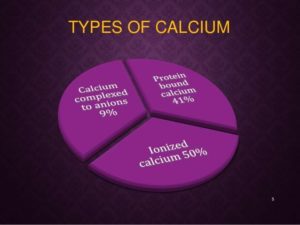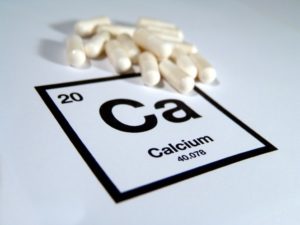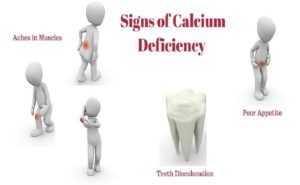
Calcium is a fundamental mineral for the human body. It helps to form and protect teeth and bones. Its appropriate levels can help prevent osteoporosis.
Its main functions are: to provide structure and rigidity to the bones, the transmission of cerebral, the contractility of the muscle and enzymes, among other useful functions. It is essential for muscular functions and for the healthy formation of bones and teeth, it enters the body through food.
Many people can obtain the necessary calcium through their daily diet. Dairy foods and green leafy vegetables contain high levels of calcium. But women and older men need extra calcium to keep their bones from weakening (osteoporosis).

Types of supplements: The forms of calcium include:
*Calcium carbonate: Over-the-counter antacid products contain calcium carbonate. These sources of calcium do not cost much. Each pill delivers 200 mg or more of calcium.
* Calcium citrate: This is a more expensive form of calcium. It is well absorbed on an empty or full stomach. People with low levels of gastric acid (a condition that is more common in people over 50 years of age) absorb calcium citrate more easily than calcium carbonate.
Other forms, such as calcium glucoside, calcium lactate, calcium phosphate. Most contain less calcium than the carbonate and citrate forms.
When choosing a calcium supplement: Avoid products made from unrefined oyster shell, These may have high levels of lead or other toxic metals.
As you take extra calcium:
* Increase the dose of your calcium supplement slowly. Your provider may recommend that you start with only 500 mg per day for a week and then slowly add more calcium.
* Try to spread the extra calcium throughout the day. DO NOT take more than 500 mg at a time.
Taking calcium spread throughout the day:
* Allows more calcium to be absorbed
* Reduces side effects such as gases, bloating and constipation

The total amount of calcium that adults need every day from food and calcium supplements:
19 to 50 years: 1,000 mg / day
51 to 70 years: men – 1,000 mg / day; women – 1,200 mg / day
71 years and older: 1,200 mg / day
Secondary effects and precautions:
- DO NOT take more than the recommended amount of calcium without the approval of your provider.
Try the following if you experience side effects from taking extra calcium:
- Drink more fluids.
- Consume foods rich in fiber.
- Try another form of calcium if changes in diet do not help.
- You should tell your provider or pharmacist if you are taking extra calcium.
- Calcium supplements can change the way your body absorbs some medications, this includes certain antibiotics and iron pills.
You should be aware of: Taking too much calcium for a long period of time increases the risk of kidney stones in some people.
Calcium deficiency

Until 30 years of age, the bones need abundant amounts of calcium to have strength in maximum levels.
The lack of calcium in the diet can have important consequences, the most common is osteoporosis.
Excess of calcium
Consuming excess calcium has negative effects on health, causes constipation, people prone to excess calcium are those who consume supplements (carbonate or citrate).
* Pregnant women: They should consume a greater amount of calcium, which should continue during breastfeeding.
* Pregnant teens should consume 1300 mg.
* Adults should consume 1000 mg as the recommended amount.
Postmenopausal women should look for some alternative source of calcium like
dairy products in smaller quantities, as well as in vegetables. Its nutritional source is also found in yogurt or cheese.
Its consumption ratio varies according to age, children 2 years of age are recommended to consume abundant whole milk, while for the elderly it should be low-fat products. These foods are of such importance because they increase vitamin D and gastric acidity.
Not only dairy products are the main source of calcium, but it can also be found in vegetables such as kale, broccoli or Chinese cabbage, as well as in fish, sardines, bread, pasta, among others. From these foods. normally the body absorbs 30 percent of its mineral content.
What happens if we do not assimilate calcium?
A series of hormonal mechanisms start which extracts calcium from the bones to ensure minimum cellular mineral content which if not restored with a new intake will weaken the bones leading to possible osteoporosis.

